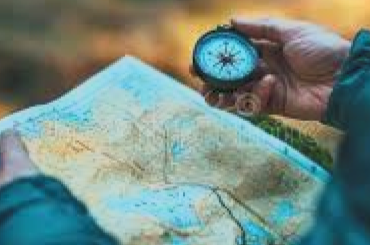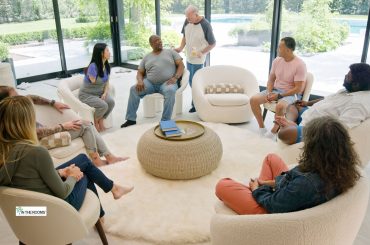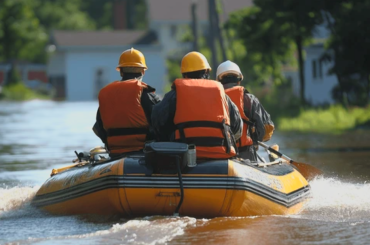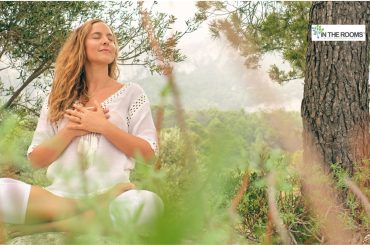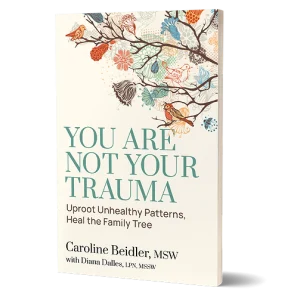
Here, I’d like to encourage you with this truth again: you are not alone.
There is a group of us, innumerable, like those beautiful shifting waves of blackbirds that create works of art in the sky as they flit here and there in perfect unison—we are all moving toward healing.
It’s easier to withdraw from others.
For the longest time, this was my coping strategy—but not a healthy one. Because I suffered pain at the hands of other people, somewhere lodged in my mind was the lie that all people are unsafe. No one can be trusted. I spent many tear-stained hours huddled in the corner of a smokey apartment, missing this: true connection, precious community, love, belonging, acceptance.
You may be like me and learned that reaching out for help is unsafe—or even impossible. It’s no wonder that sometimes we think that we have to get through things on our own. Or that only we can help ourselves. This is simply not true. As human beings, we are made for connection. Allowing others into our experience can be scary, but it’s such an important part of healing. One thing no one told me (and certainly not with their actions), but that I learned as I opened myself up to trusting others, is that it’s okay to ask for help.
Transformation can occur gradually, like Southern winters, as we learn loving actions toward ourselves: practicing self-love and boundaries, learning to forgive, all within the loving space of community.
So how can we connect as people longing for connection but sometimes fearing it dreadfully, not trusting that it’s real, that any connection exists for real outside the buzzword of community? Thanks to the internet and the experience of folks who have gone before us and found healing, there are so many ways. Sober activities through outpatient treatment centers, social media communities, support groups for trauma survivors, volunteer opportunities, activities through the Healing Arts Project and so much more! I love how poet Kate Baer puts it: “Pick up your heavy burdens and leave them at the gate. I will hold the door for you.”
When we can embrace our trauma histories, ours and our families before us—our whole stories—other signs of healing appear. We will be able to talk about the trauma without feeling upset or numb, function well in daily life (such as holding a job), treat ourselves in a safe and not self-destructive way, be in healthy relationships without feeling vulnerable or isolated. We will also be able to enjoy life, rely on ourselves and others, control overwhelming symptoms, and believe that we are worth it all.





